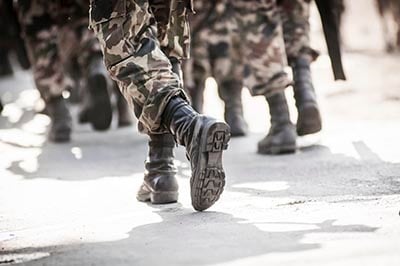October 18, 2017
Are you worried about a loved one with military PTSD? While our recent awareness of PTSD as a result of military service has led to increasingly open conversations and new treatments and therapies for veterans returning from deployment, PTSD itself is nothing new. When your spouse, partner, family member, or friend shows signs and symptoms of PTSD, you may feel helpless and unsure what to do. We’re here to help with advice for helping your loved one, as well as yourself, when dealing with the often-disabling effects of PTSD.









